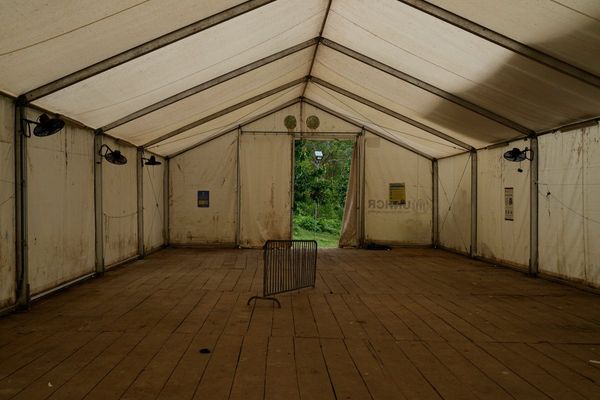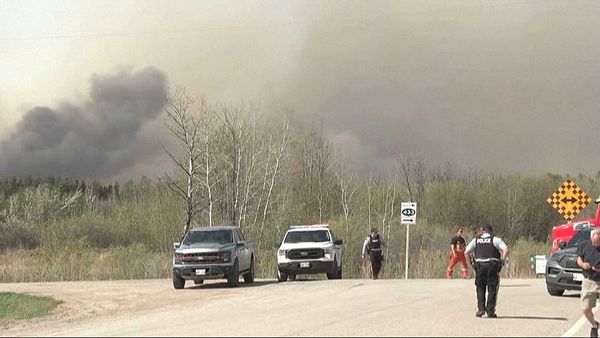
Mahadev Desai joined Mahatma Gandhi as his secretary in 1917 when he was 25 years old and breathed his last in Aga Khan prison in what was then Poona, on August 15, 1942 when he was 50 years old. A year after Mahadevbhai’s death, Gandhi penned his memories about him in a note to Pyarelal, who had succeeded the former as secretary. Gandhi’s memories of Mahadevbhai could not be included in The Collected Works of Mahatma Gandhi published by the Government of India. The note was found in the Pyarelal papers kept in the archives of the Nehru Memorial Museum and Library (NMML).
In the excerpts below, taken from Gandhi’s memories of Mahadevbhai, we see a pensive Mahatma reflecting on the nature of life and death, as a consolation on the death of one of his closest associates:
“Mahadev was like my own son. His last rites must take place like my own son. If the Government wants the cremation to take place out of the jail, I want it to be before my own eyes. I do not want to take any political mileage of his death. For me, it is a religious rite. I can say that I want to be with the body alone and I want to light his funeral pyre.”
… “The ways of God are unpredictable. It was Mahadev who was to write my memories, but he opted for eternal sleep on my lap. And now it is me who is writing his memories.”
“It was a premature death. That is how people would describe it. But the fact is no death is premature. Every life is a debt which everyone has to live till the debt is not cleared. We cannot understand or explain every death. For Mahadev I can say that he fully paid up all his debts. He has not seen day or night after he joined the Ashram. Consistent work was the only ‘Mantra’ of his life, and the work that Mahadev did was service, in terms of the Bhagvad Gita ‘Yagna’, a mission.”
“This time he spent six days in the temple of prison but these days were spent in consistent work. Generally when a Satyagrahi is jailed, in a way he is able to enjoy a little rest. But how could that be for Mahadev? I had to write letters to the Bombay Government and the Viceroy. It is not easy to write such letters. The draft letters to the Viceroy had become a serious topic of discussion. There were two or three versions and each drew criticism. The burden of making copies also was on Mahadev. He too had made several suggestions.”
“Mahadev was deeply concerned and worried about my fasts. What if the Viceroy’s reply gives certain indication? On one hand he had full faith that I would decide to undertake a fast only if there was inspiration from within or through the will of God, while on the other hand his love for me would upset him whenever there was a talk of my fasting. Mahadev understood well that he should not get agitated thus, but how could he win over his own caring nature? The echoes of the fast were already being felt outside the jail, and I was also somewhat anxious as I was not getting any clear inspiration. Mahadev would try constantly not to let that happen. I had frequently heard his exclamation that he preferred to die rather than see me fasting once again. And that is what happened. A day before his death, the letter to the Viceroy was sent, and on the morning of 15th, Mahadev breathed his last. It was a Saturday.”
…. “At about 4 pm the body was given the last rites in the open ground on the eastern side of the Palace. I had carried the funeral clay-pot, leading the procession.”
“Sarojinidevi, Kasturba, Miraben, Sushila, Colonel Bhandari, Colonel Shah, Major Advani and Khan Bahadur Kateli were present on the occasion…. Pain, sorrow and serenity was writ large on everyone’s face. Everyone appeared to have realised the real value of Mahadev. Within a short period Mahadev had won the hearts of everyone, young and old, including the soldiers who had begun to consider him a part of their family, such was his nature.”
“Ba, who had displayed extraordinary courage so far, broke down when I ignited the funeral pyre. Sushila had to get hold of her. Although Sarojini and others tried to console her, Ba could not stop crying her heart out. Ba always considered Mahadev as her son. Recounting the numerous services that Mahadev had provided, Ba’s main worry was what she would tell Durga, his better half, what would become of young Narayan; how could Mahadev leave this world while she still lives on. And so on. Such anguish was difficult to pacify.”
“Thus the corporeal relation that had begun in the year 1916 came to an end in 1942 that is for 26 (25) years. However, spiritual relations do not end with corporeal relations coming to an end. That relation has continued and will always be there, I am firm in this belief.”
“My first memory of Mahadev is of the tour of Champaran. Before Mahadev joined me, I had not formed the habit of travelling with others. I was not at all handicapped. I was able to carry my own luggage. I did not worry about my food at all. If needed, I could cook for myself. Even if I found peanuts and dates that solved my problem of meals. But when Mahadev began to accompany me, he took charge of me. It was his work to look after my luggage and pack it. The burden of writing for me fell on him naturally. He would write many letters that I dictated, or many on his own in keeping with what I had told him. His handwriting was like real pearls. He soon grasped my language and its style, thus my confidence on the capability and speed of work of Mahadev kept on increasing. His willingness and capability of doing all the work were equal. That is why Mahadev became a good writer. He was also a good cook and a good barber.”
“He had a lot of magnetic charm. His nature was loving, social and helpful. He would charm everyone he met with his knowledge. He also had a great ability to take up new tasks. The tasks that he was given were mostly new and he had to use his abilities in new ways too to accomplish them.
“I understand that Mahadev had not joined me with any political aim. At the time when he joined me, India had no idea about my political strength. I was still an enigma. Mahadev and Narhari (Parikh) were attracted to me due to religious inclination. They believed firmly that there was some miraculous element in satyagraha. Narhari or Mahadev did not see any place for themselves in the current political scene. What’s more, neither had the yearning for wealth, nor a hankering for personal fame. They had plenty of sense of service to others, and they both felt that this would be best used when they worked with me.”







